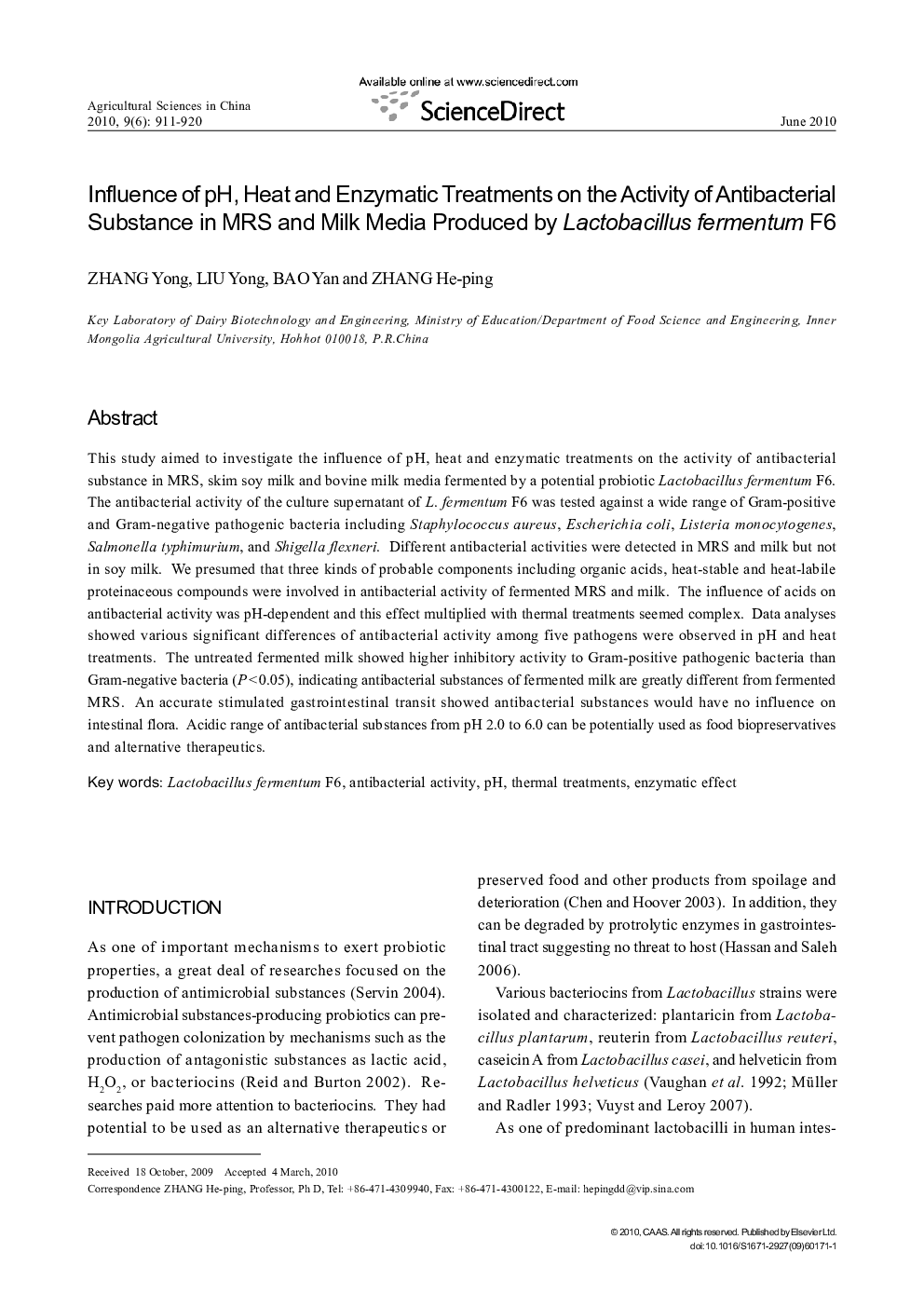| Article ID | Journal | Published Year | Pages | File Type |
|---|---|---|---|---|
| 4490139 | Agricultural Sciences in China | 2010 | 10 Pages |
This study aimed to investigate the influence of pH, heat and enzymatic treatments on the activity of antibacterial substance in MRS, skim soy milk and bovine milk media fermented by a potential probiotic Lactobacillus fermentum F6. The antibacterial activity of the culture supernatant of L. fermentum F6 was tested against a wide range of Gram-positive and Gram-negative pathogenic bacteria including Staphylococcus aureus, Escherichia coli, Listeria monocytogenes, Salmonella typhimurium, and Shigella flexneri. Different antibacterial activities were detected in MRS and milk but not in soy milk. We presumed that three kinds of probable components including organic acids, heat-stable and heat-labile proteinaceous compounds were involved in antibacterial activity of fermented MRS and milk. The influence of acids on antibacterial activity was pH-dependent and this effect multiplied with thermal treatments seemed complex. Data analyses showed various significant differences of antibacterial activity among five pathogens were observed in pH and heat treatments. The untreated fermented milk showed higher inhibitory activity to Gram-positive pathogenic bacteria than Gram-negative bacteria (P < 0.05), indicating antibacterial substances of fermented milk are greatly different from fermented MRS. An accurate stimulated gastrointestinal transit showed antibacterial substances would have no influence on intestinal flora. Acidic range of antibacterial substances from pH 2.0 to 6.0 can be potentially used as food biopreservatives and alternative therapeutics.
